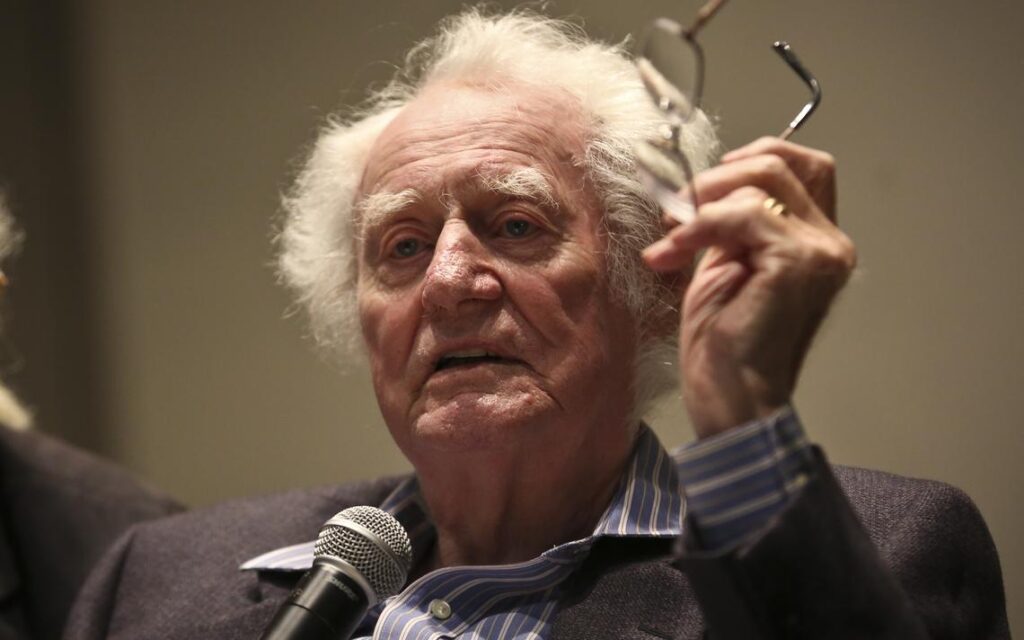Friday
Robert Bly, the celebrated Minnesota poet and key figure in the men’s movement, died this past week. While I liked how Bly used the Grimm Brothers’ story “Iron John” to ground his search for the wild man within, I must say that I never felt drawn to the men’s movement that he championed. I had other projects that seemed more important, like teaching full-time, raising three boys, and being a good husband. Still, Bly was always a fascinating figure.
I share a poem that seems appropriate, given the way “Bach’s B Minor Mass” talks calmly about death and assures us that all will be well (“The orphans will be fed”). Images of devastation are offset by birds, messengers to the spirit world. “The tidal wave that/ Wipes out whole cities is merely the wood thrush/Lifting her wings to catch the morning sun,” Bly tells us, and “Even after/Their tree has splintered and fallen in the night, once/ Dawn has come, the birds can do nothing but sing.”
Bach’s B Minor Mass
The Walgravian ancestors step inside Trinity Church.
The tenors, the horns, the sopranos, the altos
Say: “Do not be troubled. Death will come.”
The basses as they sing reach into their long coats
And give bits of dark bread to the poor, saying,
“Eat, eat, in the shadow of Jethro’s garden.”
The clarinets remind us of the old promise
That the orphans will be fed. The oboes reply,
“Oh, that promise is too wonderful for us!”
Don’t worry, my dears. The tidal wave that
Wipes out whole cities is merely the wood thrush
Lifting her wings to catch the morning sun.
We know that God gobbles up the Faithful.
The Harvesters on the sea floor are feeding
All of those ruined by the depth of the sea.
We know that people live and die. Even after
Their tree has splintered and fallen in the night, once
Dawn has come, the birds can do nothing but sing.


